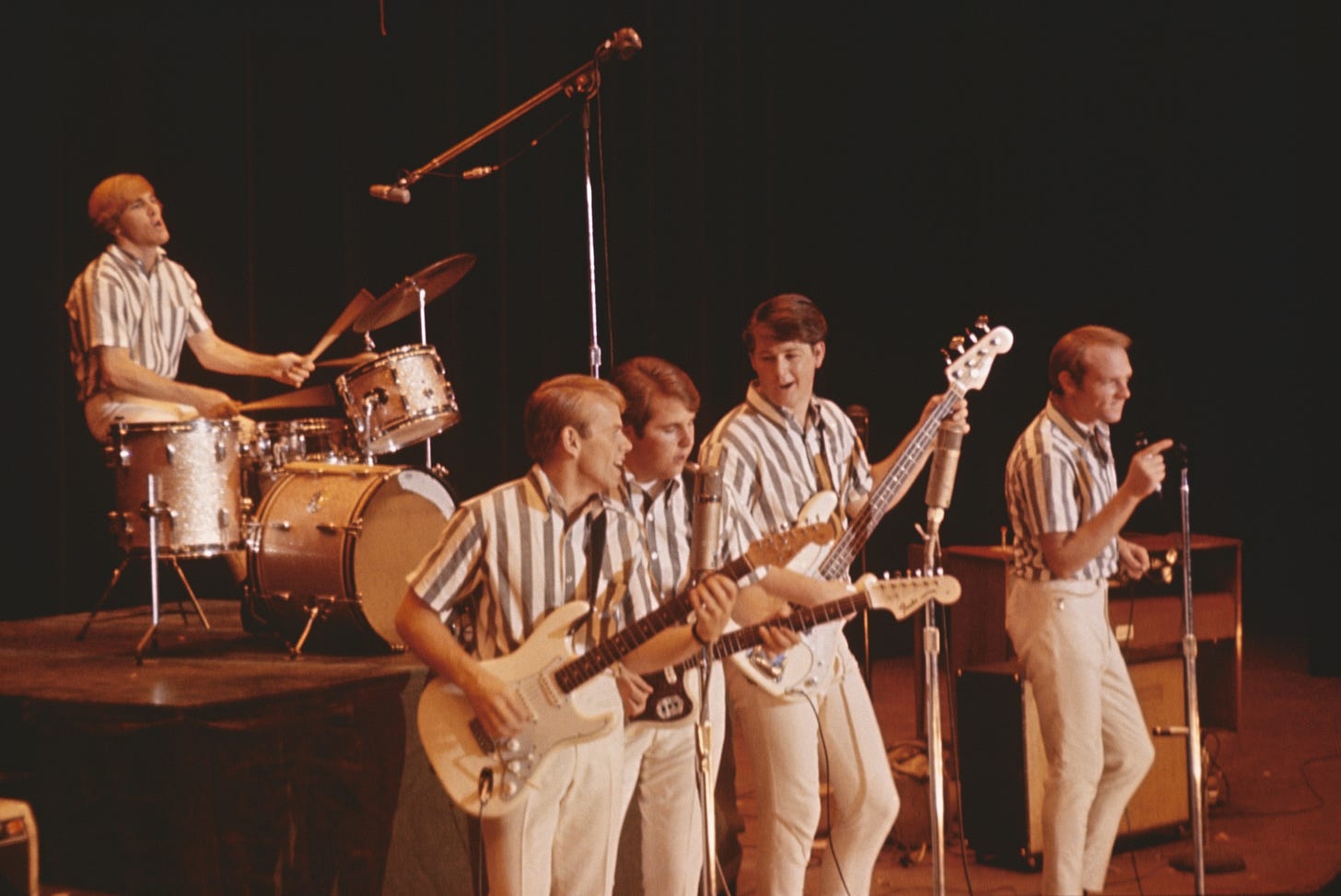‘The Beach Boys’ tells a (big) part of America’s Band’s story
The new documentary, out on Disney+ today, provides a blow-by-blow of the Beach Boys’ first decade
I frequently complain that documentaries are longer than necessary, especially on streaming services. So many stories that could have been told in one 90-minute or two-hour documentary are instead told in four, five, or six parts. Other times, a documentary is split into three 45-minute parts rather than one 135-minute movie.
I understand why streaming services do this, especially since keeping engagement is essential to them. But whether something is one part or four often plays a big part in what I decide to watch first.
When I first heard that a documentary about The Beach Boys was on the way, authorized by the band and called simply The Beach Boys, was set to debut on Disney+ (following a brief run in IMAX theaters), I was surprised by how short it was, at 113 minutes.
The Beach Boys formed in 1961 and have been around for over 60 years across seven decades. How can all of that history be covered in under two hours? This, if any subject, could justify a multi-part documentary format; one could make a documentary only about the Pet Sounds/Smile period and possibly have trouble fitting that into two hours.
There were other reasons to be skeptical. This story has been told many, many times before. There was a 2000 TV miniseries called The Beach Boys: An American Family and the great Brian Wilson biopic Love & Mercy. A couple of years ago, there was a documentary about Brian, Long Promised Road, and another on The Wrecking Crew, their backing band. Plus, only three of the original Beach Boys are still with us; all three are now in their 80s, and one was recently placed under a conservatorship.
That said, the Beach Boys documentary is a pleasant surprise, for what it is. Codirected by superproducer Frank Marshall and Thom Zimny, who is best known as Bruce Springsteen’s house documentarian, the film expertly tells (part of) the band’s story, weaving in archival footage, both new and older interviews, and most of the Beach Boys’ best music.
As for how the film fits all the history in less than two hours, it gets around that problem by ending the story around 1970 and ignoring just about everything that happened after that, including the deaths of Dennis and Carl Wilson.
Some negative things about their history — numerous lawsuits, Murry Wilson being an abusive monster who sold off the band’s publishing rights for almost nothing, and Dennis Wilson’s friendship with Charles Manson — are mentioned briefly. Others — starting with anything involving Eugene Landy — are left out entirely. We don’t get the story of their comeback hit, “Kokomo,” in the late 1980s, although we do hear it over the closing credits.
I guess the operating assumption is that most people watching have seen the Brian-specific docs and Love & Mercy, and they don’t need to revisit all that.
While it’s still a very enjoyable sit, the documentary doesn’t appreciably deviate from the general understanding of the Beach Boys’ history. We learn how they both leached onto existing California surfing culture and helped shape it as part of the band’s push of the “California Dream.” Dennis Wilson was the only actual surfer in the group, and he liked surfing more than music.
There is much emphasis placed on Brian Wilson’s mental illness troubles, his clashes with Mike Love, and Carl Wilson’s later emergence as the band’s leader.
To give you a sense of how long the Beach Boys have been around, I’m 45 years old. Most of their music of consequence came out long before I was born, and I was about ten for the “Kokomo” era. I got very into Pet Sounds around the time of Love & Mercy, and even that was almost a decade ago.
The Beach Boys is very entertaining, but I wish we could have gotten a version that was many hours long, went into even more depth, and covered more history.





